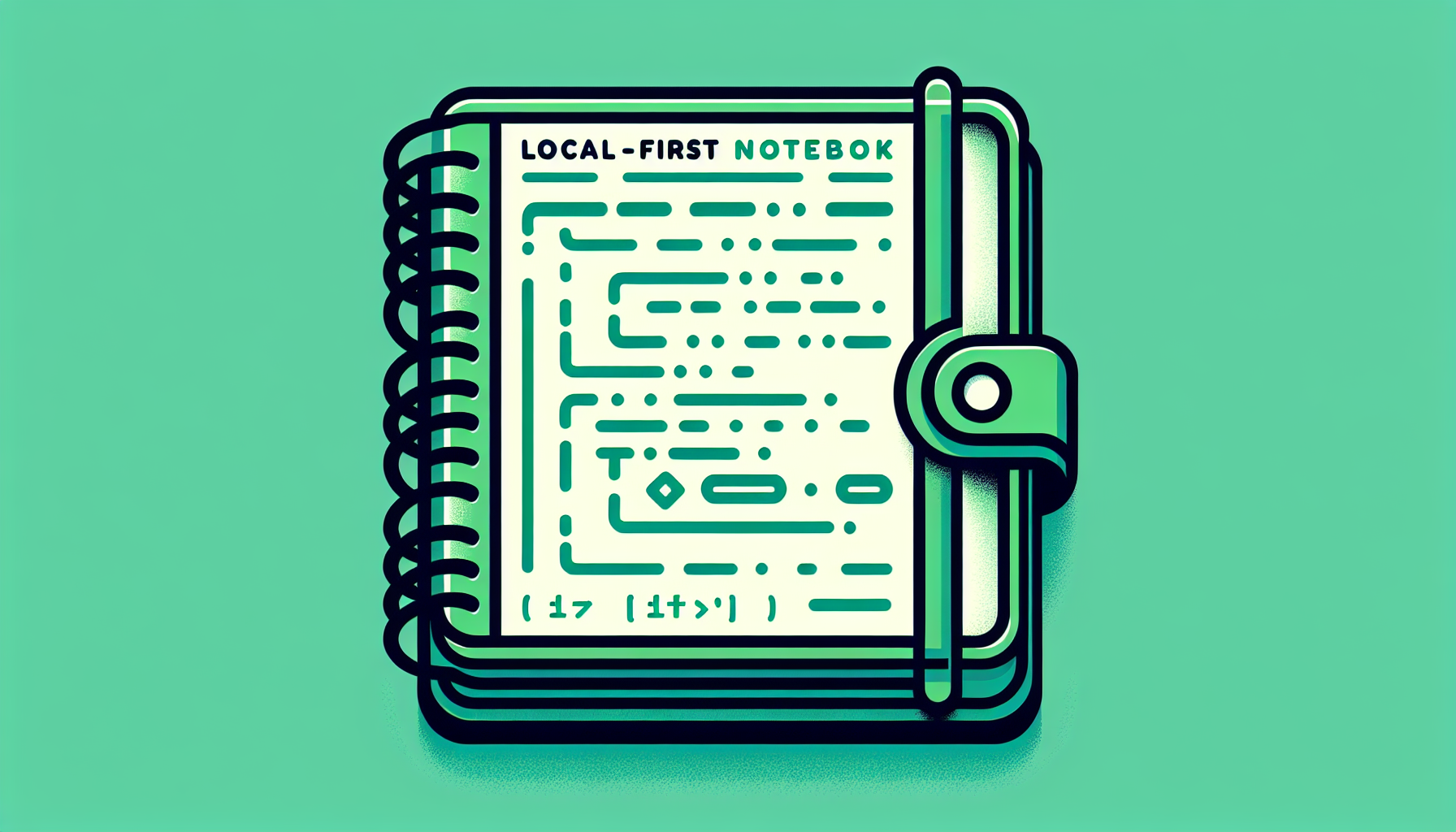A local-first notebook system for Python, inspired by Clerk for Clojure
Why it matters
- Plaque offers a unique local-first approach, enabling Python developers to work offline without dependencies on cloud services.
- Inspired by Clerk, a popular tool for Clojure, Plaque brings similar functionalities to the Python ecosystem, fostering a more interactive coding experience.
- The initiative aims to enhance the productivity and creativity of developers by allowing seamless documentation alongside coding.
In a significant development for Python developers, a new notebook system called Plaque has been launched, taking inspiration from the functionalities offered by Clerk for Clojure. This innovative tool is designed to provide a local-first environment where users can create and manage their notebooks without the need for an internet connection. This approach ensures that users can work efficiently anywhere, making it a valuable asset for those in remote locations or those who prefer not to rely on cloud services.
Plaque's design focuses on enhancing the coding experience by allowing developers to write code and document their thought processes in a single, cohesive interface. The integration of documentation with coding is crucial for improving code readability and maintainability, as it helps users articulate their intentions and reasoning behind their code choices. This practice not only assists the original developer but also aids others who may collaborate on the project or revisit it in the future.
One of the standout features of Plaque is its user-friendly interface, which encourages experimentation and exploration. By offering a space where users can write Python code alongside explanatory text, it cultivates an interactive coding environment. This is particularly beneficial for educational purposes, as it allows students and new programmers to see the immediate results of their code in context.
The local-first aspect of Plaque also addresses common concerns related to data privacy and security. As developers increasingly become aware of the risks associated with cloud-based solutions, having a notebook system that operates entirely on local machines alleviates these worries. Users can store their work on their devices without the fear of unauthorized access or data breaches that can occur when storing sensitive information online.
Plaque's release comes at a time when the demand for versatile and efficient coding tools is on the rise. The programming community is continually seeking solutions that enhance productivity and foster creativity. By providing a platform that integrates coding with documentation, Plaque meets this need head-on. The tool's design encourages developers to think critically and creatively about their coding practices, promoting a culture of best practices in software development.
Moreover, the inspiration drawn from Clerk is evident in Plaque's functionality. Clerk has gained popularity among Clojure developers for its ability to allow users to write and run code in an interactive manner, seamlessly merging code and documentation. By adapting these principles for Python, Plaque bridges a gap in the existing tools available for Python developers, who have long sought a similar experience.
As Python continues to dominate the programming landscape, tools like Plaque are essential for keeping pace with the evolving needs of developers. The ability to work locally while still enjoying rich documentation capabilities is set to make Plaque an attractive option for many in the Python community. Developers can now create notebooks that serve not only as coding environments but also as comprehensive resources for sharing knowledge and insights.
In conclusion, the emergence of Plaque as a local-first notebook system for Python marks an exciting milestone for developers looking to enhance their workflow. By prioritizing local execution and documentation, Plaque offers a refreshing alternative to traditional coding environments, fostering a more interactive and secure approach to programming. As the tool gains traction, it is likely to inspire further innovations within the Python ecosystem, encouraging developers to adopt more effective coding practices.











